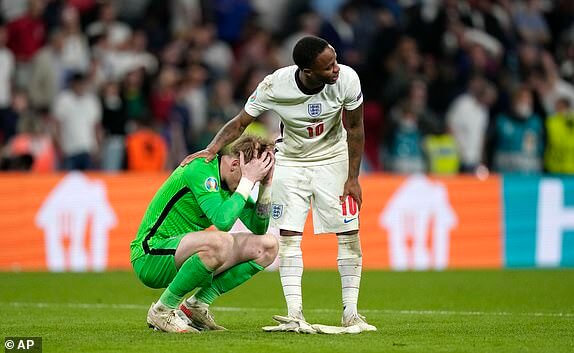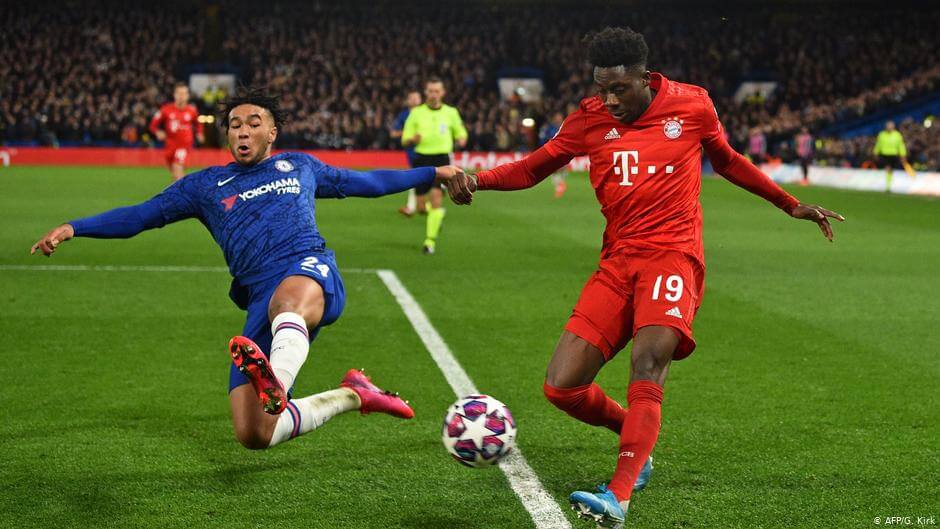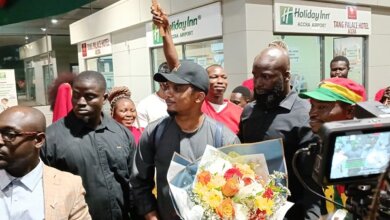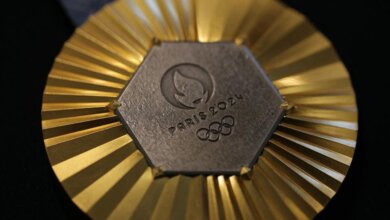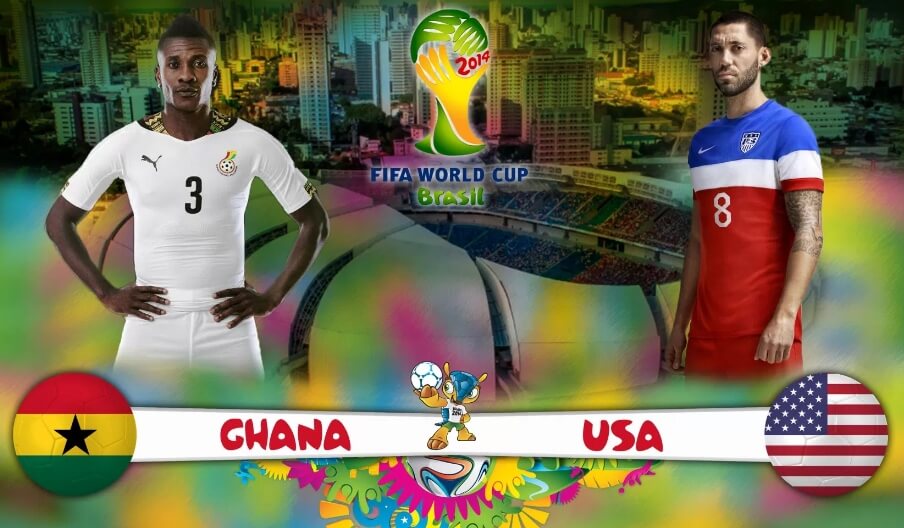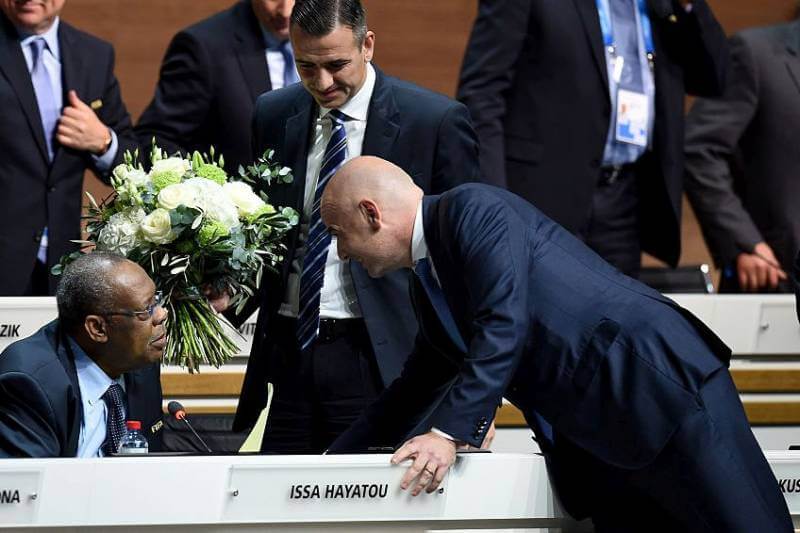

LONDON, January 14, 2017 – Gianni Infantino needs the African Nations Cup, launching this weekend in Gabon, to be a success on the pitch; Issa Hayatou needs to be able to boast of a financial success off it.
The presidents of world federation FIFA and the African confederation have been tied together in political power games ever since the downfall of Sepp Blatter last year. Hayatou was interim president of FIFA until Infantino’s election last February; he remains senior vice-president and finance chairman.
Infantino sent shock waves throughout world football this past week when he won approval for his proposal for a 48-team World Cup. But one of the major criticisms is an expansionist threat to the quality of football at the finals.
This is why Infantino needs goals and glory in Gabon, to prove that African football is worthy of extra places on the big stage. Thus far, for all its teams have achieved, Africa has been over-represented at the finals. Not only that, but most of their teams turn up in administrative chaos and squabbling over money.
Hayatou, 70, has other issues. His contracting of a long-term sponsor deal for the Nations Cup with Total was controversial: he needs an entertaining tournament to calm any qualms about his expectation of extending his 29 years in office. Already Hayatou has tweaked the CAF statutes so that, delicate health permitting, he can go on and on.
Ahmad Ahmad, the 57-year-old head of the Madagascar FA, the Fisheries Minister and a long-time foe, is one man who wants to stand against Hayatou in the presidential election in March in Addis Ababa.
Ahmad is a member of the CAF executive committee which is the regulatory barrier which halted Jacques Anouma’s putative challenge to Hayatou four years ago. But he has a controversial record: he was one of the African federation directors compromised by Mohamed bin Hammam in the Qatari’s dommed bid to unseat Blatter at FIFA five years ago.
He has already felt the wrath of Hayatou: Madagascar was stripped only yesterday of the hosting rights to the Under-17 African Nations Cup over issues reported by CAF’s inspection team. Simultaneously, general secretary Hicham El Amrani reiterated CAF’s refusal to amend the senior event’s scheduling, every two years in the middle of the European season.
He said: “It is always a contentious date from a European perspective, but not from the perspective of Africa. It has been the most successful way to develop and organise African football … It’s critical to keep it every two years if we are further develop infrastructure. The Nations Cup brings not only new stadiums but also upgrades in terms of airports, road and hotels.”
CAF would also not be following FIFA’s expansionist example and would be sticking with the current 16-team format.
Amrani added: “Sixteen teams is a great format for us. We see it as a fair and consistent sporting approach. If we expanded it, only a few African countries would have the capacity to ever be able to host it, and that is not what we want.”
The next finals will be hosted in Cameroon in 2019, Ivory Coast in 2021 and Guinea in 2023.
This time around hosts Gabon kick off the party against Guinea-Bissau, hoping to improve on their quarter-finals achievement of 2012 when Gabon co-hosted the tournament with Equatorial Guinea. This time Gabon will be lead by Dortmund star striker Pierre-Emerick Aubameyang in a comparatively straightforward group, including Burkina Faso and Cameroon.
The Indomitable Lions have been one of the participants hardest hit by the usual Club versus Country rows. Joel Matip of Liverpool was one of seven players who told coach Hugo Broos they were not interested in being selected for the tournament. With World Cup qualifiers in mind, Cameroon will not be seeking disciplinary action.
The tournament will feature 368 players from clubs in 68 countries, including Canada, the Middle East and Vietnam. Clubs in England and France have lost 89 players to the three-week event.
Riyad Mahrez, named African Footballer of the Year last week, and his Algerian compatriot Islam Slimani may be absent for weeks from club football with English champions Leicester City as the duo will represent Algeria in group B, the tournament’s group of death, with Senegal, Tunisia and Zimbabwe.
Senegal are Africa’s top-ranked team and had a 100pc record in the qualifiers, but the Lions of Teranga have consistently underperformed at the finals tournament.
In group C, favorites Ivory Coast had financial problems until President Alassane Ouattara stepped in with a campaign warchest of €6m. The defending champions have been matched with Togo, DR Congo and Morocco. They kick off their tournament against Togo on January 16 in Oyem.
In the 2015 final the Ivoriens defeated Ghana on penalties.
Group D sees the return of seven-times African champions Egypt after missing the last three tournaments. They face Ghana, Mali and Uganda. The Ghanaians endured muddled preparation, with perpetual doubts about the permanence of manager Avram Grant.
Whoever wins final on February 4 will carry off $4million in prize money. Hayatou thinks of everything.
Source: Keir Radnedge, AIPS Football Chairman

